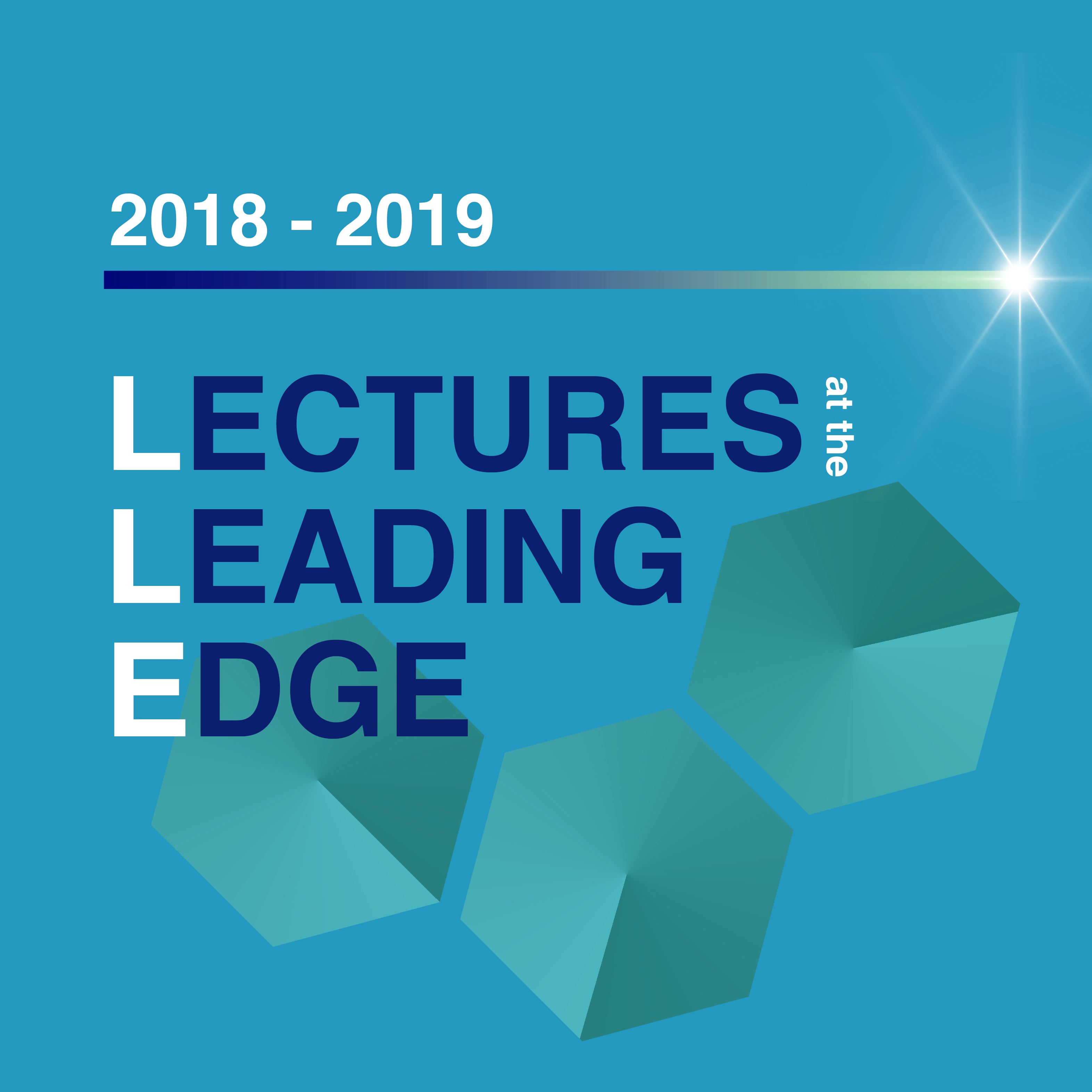
Co-hosted with CivMin, and Engineering Departments at Ryerson, and York
LUTGARDE RASKIN
University of Michigan
Can engineering controls shape the drinking water microbiome and reduce the risk of opportunistic infections?
Biological treatment processes and particularly biofiltration have gained tremendous popularity in the drinking water field over the past decade. However, we do not yet understand how biofiltration, disinfection, and transport of treated water through distribution systems and building plumbing influence tap water and human microbiomes. Most microbes in biofilters mediate positive impacts through removal of contaminants, but others have the potential to cause disease. In high-income countries, the risk of waterborne infection is often due to exposure to opportunistic pathogens, such as Legionella pneumophila and nontuberculous mycobacteria. This presentation will show that these microbes, present in source water microbiomes, are only partially removed and sometimes are selected for by current treatment practices and therefore become integrated in the diverse microbial communities in drinking water. Waterborne infections by these microbes mainly affect immunocompromised individuals, a rapidly expanding subset of the population, and result primarily from inhalation of aerosols. These findings call for an increased understanding of how drinking water aerosols impact our respiratory tract microbiomes. We have begun to address this challenge by focusing on cystic fibrosis, a condition known to predispose individuals to polymicrobial respiratory tract infection. The presentation will conclude by discussing steps water quality engineers and drinking water utilities can take to reduce risk of opportunistic infections while maintaining drinking water treatment objectives.
______________________________________________________
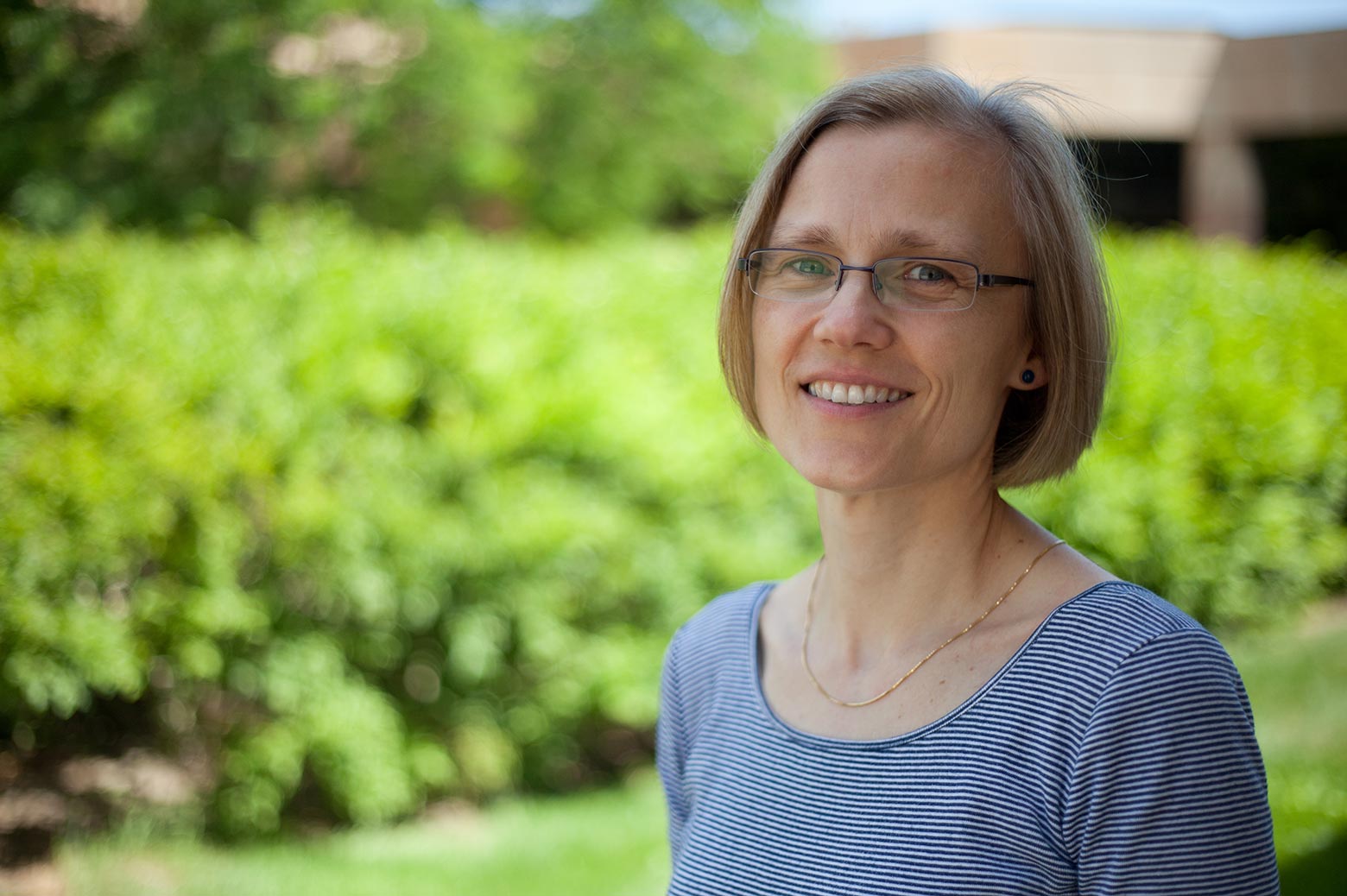 LUTGARDE RASKIN is the Altarum/ERIM Russell O’Neal Professor of Environmental Engineering and one of four faculty members of the University of Michigan Environmental Biotechnology group. She is inspired by the complexity of the microbial world and the astonishing progress we have made in the field of microbial ecology over the past few decades. This progress continuously motivates her to rethink engineered systems so we can better harness the power of microorganisms to treat water and recover resources from waste stream.
LUTGARDE RASKIN is the Altarum/ERIM Russell O’Neal Professor of Environmental Engineering and one of four faculty members of the University of Michigan Environmental Biotechnology group. She is inspired by the complexity of the microbial world and the astonishing progress we have made in the field of microbial ecology over the past few decades. This progress continuously motivates her to rethink engineered systems so we can better harness the power of microorganisms to treat water and recover resources from waste stream.
Lutgarde strives to understand and improve various aspects of the engineered water cycle microbiome to improve human health using sustainable design approaches. Her research places particular focus on (i) water and energy recovery from waste streams and energy crops, and (ii) drinking water systems including biofiltration, disinfection, distribution and premise plumbing.
Download the lecture poster HERE
For more information on Lectures at the Leading Edge 2018-19 click HERE.

 ALÁN ASPURU-GUZIK
ALÁN ASPURU-GUZIK
University of Toronto
Closed-loop Discovery of Materials: Robotics, Artificial Intelligence and Predictive Methods for the Design of Active Organic Materials
Arguably, the timeline from discovery to commercialization to scale up of novel materials is too long. The process of discovery is ridden with pitfalls that stop ideas and insights in the lab from being developed into new technologies. Given the accelerated degradation of our environment due to anthropogenic sources of atmospheric carbon, fast action is needed to tackle the challenges of the twenty-first century. In this talk, I argue that to increase our rate of discovery, we need to re-think the current laboratory setups and protocols. We should seek to build “self-driving” laboratories that by using closed-loop feedback of rapid synthesis and characterization steps help humans explore chemicals and materials space faster. Specifically, I will discuss the progress in my research group and collaborators in the use of artificial intelligence, automation and high-throughput screening for the accelerated discovery of organic materials in the fields of organic flow batteries and organic electronics. I am very interested in getting to meet my colleagues from Chemical Engineering and Applied Chemistry to foster potential collaborations as we seek to build our self-driving lab here in Toronto.
__________________________________________________
 ALÁN ASPURU-GUZIK is professor of Chemistry and Computer Science at the University of Toronto and Canada 150 Research Chair in Theoretical Chemistry. Alán was hired by Harvard University in 2006 and was promoted to Full Professor in 2013. He received his B.Sc. from the National Autonomous University of Mexico (UNAM) in 1999 and obtained a PhD from the University of California, Berkeley in 2004, where he was also a postdoctoral fellow from 2005-2006.
ALÁN ASPURU-GUZIK is professor of Chemistry and Computer Science at the University of Toronto and Canada 150 Research Chair in Theoretical Chemistry. Alán was hired by Harvard University in 2006 and was promoted to Full Professor in 2013. He received his B.Sc. from the National Autonomous University of Mexico (UNAM) in 1999 and obtained a PhD from the University of California, Berkeley in 2004, where he was also a postdoctoral fellow from 2005-2006.
Alán conducts research in the interfaces of quantum information, chemistry, machine learning and chemistry. He is a pioneer in the development of algorithms and experimental implementations of quantum computers and quantum simulators dedicated to chemical systems. He has studied the role of quantum coherence in the transfer of excitonic energy in photosynthetic complexes and has accelerated the discovery by calculating organic semiconductors, organic photovoltaic energy, organic batteries and organic light-emitting diodes. He has worked on molecular representations and generative models for the automatic learning of molecular properties. Currently, Alán is interested in automation and “autonomous” chemical laboratories.
Among his awards are the Google Focused Award for Quantum Computing, the Sloan Research Fellowship, and was he was selected as one of the best innovators under 35 by the MIT Technology Review. He is a member of the American Physical Society and an elected member of the American Association for the Advancement of Science (AAAS) and he received the Early Career Award in Theoretical Chemistry from the American Chemical Society.
Download the lecture poster HERE
For more information on Lectures at the Leading Edge 2018-19 click HERE
Learn how to design SAG and AG mill grinding circuits using only SAGDesign technology and test work. This method is the most accurate, fastest to complete, and lowest total cost of any design method available. This lecture will present details on the theory and application of the SAGDesign SAG test, the following Bond BM Wi test on SAG ground ore, and will include the calculation methods that allow any engineer to convert lab test work results and project design specifications, into the actual mill sizes with motors suitable to do the grinding work required.
____________________________________
John Starkey, P. Eng., BASc. in Mining Engineering, University of Toronto, 6T1
- 16 years in operations, Kam Kotia, ORF SAG Pilot Plant, Kidd Creek, INCO mills and mines
- 12 years in mill engineering design at Kilborn Limited in Toronto, 1977 – 1989
- 29 years as a Designated Consulting Engineer
- Invented and co-developed the SPI and SAGDesign tests for measuring ore hardness.
- Frequent lecturer at universites world wide teaching the fundamentals of SAG mill design.
It’s that time of the year again – Join BioZone for an afternoon of exciting student research presentations, 3MTs and poster sessions.
Get to know what labs in BioZone are doing. Pizza will be provided after the event for people who register on Eventbrite.

RON WEISS
Massachusetts Institute of Technology
Mammalian Synthetic Biology: Foundation and Therapeutic Applications
Synthetic biology is revolutionizing how we conceptualize and approach the engineering of biological systems. Recent advances in the field are allowing us to expand beyond the construction and analysis of small gene networks towards the implementation of complex multicellular systems with a variety of applications. In this talk I will describe our integrated computational / experimental approach to engineering complex behavior in a variety of cells, with a focus on mammalian cells. In our research, we appropriate design principles from electrical engineering and other established fields. These principles include abstraction, standardization, modularity, and computer aided design. But we also spend considerable effort towards understanding what makes synthetic biology different from all other existing engineering disciplines and discovering new design and construction rules that are effective for this unique discipline. We will briefly describe the implementation of genetic circuits and modules with finely-tuned digital and analog behavior and the use of artificial cell-cell communication to coordinate the behavior of cell populations. The first system to be presented is a multi-input genetic circuit that can detect and destroy specific cancer cells based on the presence or absence of specific biomarkers in the cell. We will also discuss preliminary experimental results for obtaining precise spatiotemporal control over stem cell differentiation for tissue engineering applications. We present a novel approach for generating and then co-differentiating hiPSC-derived progenitors with a genetically engineered pulse of GATA-binding protein 6 (GATA6) expression. We initiate rapid emergence of all three germ layers as a combined function of GATA6 expression levels and tissue context. We ultimately obtain a complex tissue that recapitulates early developmental processes and exhibits a liver bud-like phenotype that includes haematopoietic and stromal cells, as well as a neuronal niche. This complex organoid can be used for drug development and potentially for tissue transplantation.
_____________________________________________________
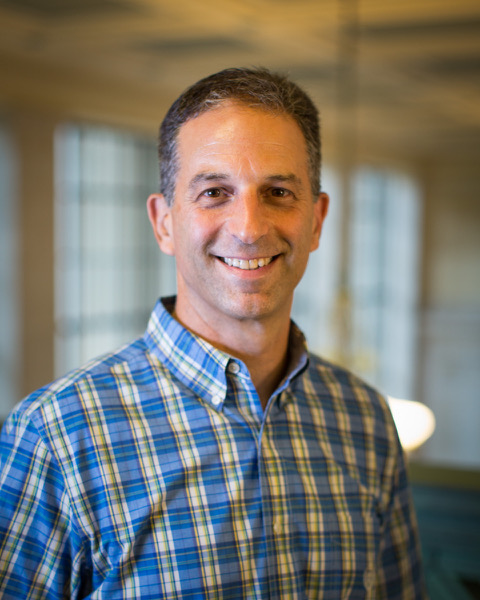 RON WEISS is Professor in the Departments of Biological Engineering and of Electrical Engineering and Computer Science at MIT, and is the Director of the Synthetic Biology Center. Professor Weiss is one of the pioneers of synthetic biology, and has been engaged in synthetic biology research since 1996 when he was a graduate student at MIT. After completion of his PhD, Weiss joined the faculty at Princeton University, and then returned to MIT in 2009 to take on a faculty position. The research pursued by Weiss since those early days has placed him in a position of leadership in the field, as evidenced both by publications from his lab as well as a variety of awards and other forms of recognition. He pursued several aspects of synthetic biology, including synthesis of gene networks engineered to perform in vivo analog and digital logic computation. The Weiss lab also published seminal papers in synthetic biology focused on programming cell aggregates to perform coordinated tasks using engineered cell-cell communication with chemical diffusion mechanisms such as quorum sensing. Several of these manuscripts were featured in a recent Nature special collection of a select number of synthetic biology papers reflecting on the first 10 years of synthetic biology. While work in the Weiss lab began mostly with prokaryotes, during the last 5 years a majority of the research in the lab shifted to mammalian synthetic biology. The lab focuses both on foundational research, e.g. creating general methods to improve our ability to engineering biological systems, as well as pursuing specific health related applications where synthetic biology provides unique capabilities.
RON WEISS is Professor in the Departments of Biological Engineering and of Electrical Engineering and Computer Science at MIT, and is the Director of the Synthetic Biology Center. Professor Weiss is one of the pioneers of synthetic biology, and has been engaged in synthetic biology research since 1996 when he was a graduate student at MIT. After completion of his PhD, Weiss joined the faculty at Princeton University, and then returned to MIT in 2009 to take on a faculty position. The research pursued by Weiss since those early days has placed him in a position of leadership in the field, as evidenced both by publications from his lab as well as a variety of awards and other forms of recognition. He pursued several aspects of synthetic biology, including synthesis of gene networks engineered to perform in vivo analog and digital logic computation. The Weiss lab also published seminal papers in synthetic biology focused on programming cell aggregates to perform coordinated tasks using engineered cell-cell communication with chemical diffusion mechanisms such as quorum sensing. Several of these manuscripts were featured in a recent Nature special collection of a select number of synthetic biology papers reflecting on the first 10 years of synthetic biology. While work in the Weiss lab began mostly with prokaryotes, during the last 5 years a majority of the research in the lab shifted to mammalian synthetic biology. The lab focuses both on foundational research, e.g. creating general methods to improve our ability to engineering biological systems, as well as pursuing specific health related applications where synthetic biology provides unique capabilities.
Download the lecture poster HERE
For more information on Lectures at the Leading Edge 2018-19 click HERE

MANOS MAVRIKAKIS
University of Wisconsin – Madison
Reaction Mechanisms and Structure Sensitivity for Heterogeneous Catalyst Discovery from First-Principles
First-principles calculations have emerged as a key contributor towards the fundamental understanding of heterogeneous catalysis and the educated discovery of improved catalytic materials. By choosing the example of formic acid (HCOOH) decomposition on transition metals and alloys, we demonstrate how a deep mechanistic understanding of selective versus unselective routes can help with designing more selective catalysts. HCOOH is a simple molecule that is an abundant product of biomass processing and can serve as an internal source of hydrogen for oxygen removal and upgrading of biomass to chemicals and fuels. In addition, HCOOH can be used as a fuel for low temperature direct fuel cells. We start by presenting a systematic study of the HCOOH decomposition reaction mechanism starting from first-principles and including reactivity experiments and microkinetic modeling. In particular, periodic self-consistent Density Functional Theory (DFT) calculations are performed to determine the stability of reactive intermediates and activation energy barriers of elementary steps. Mean-field microkinetic models are developed and calculated reaction rates, orders, etc are then compared with experimentally measured ones. These comparisons provide useful insights on the nature of the active site, most-abundant surface intermediates as a function of reaction conditions and feed composition. Trends across metals on the fundamental atomic-scale level up to selectivity trends will be discussed. Finally, we identify from first-principles alloy surfaces, which may possess better catalytic properties for selective dehydrogenation of HCOOH than monometallic surfaces, thereby guiding synthesis towards promising novel catalytic materials. Time-permitting, we may discuss novel catalyst design for the efficient electrocatalytic oxidation of HCOOH.
______________________________________________________
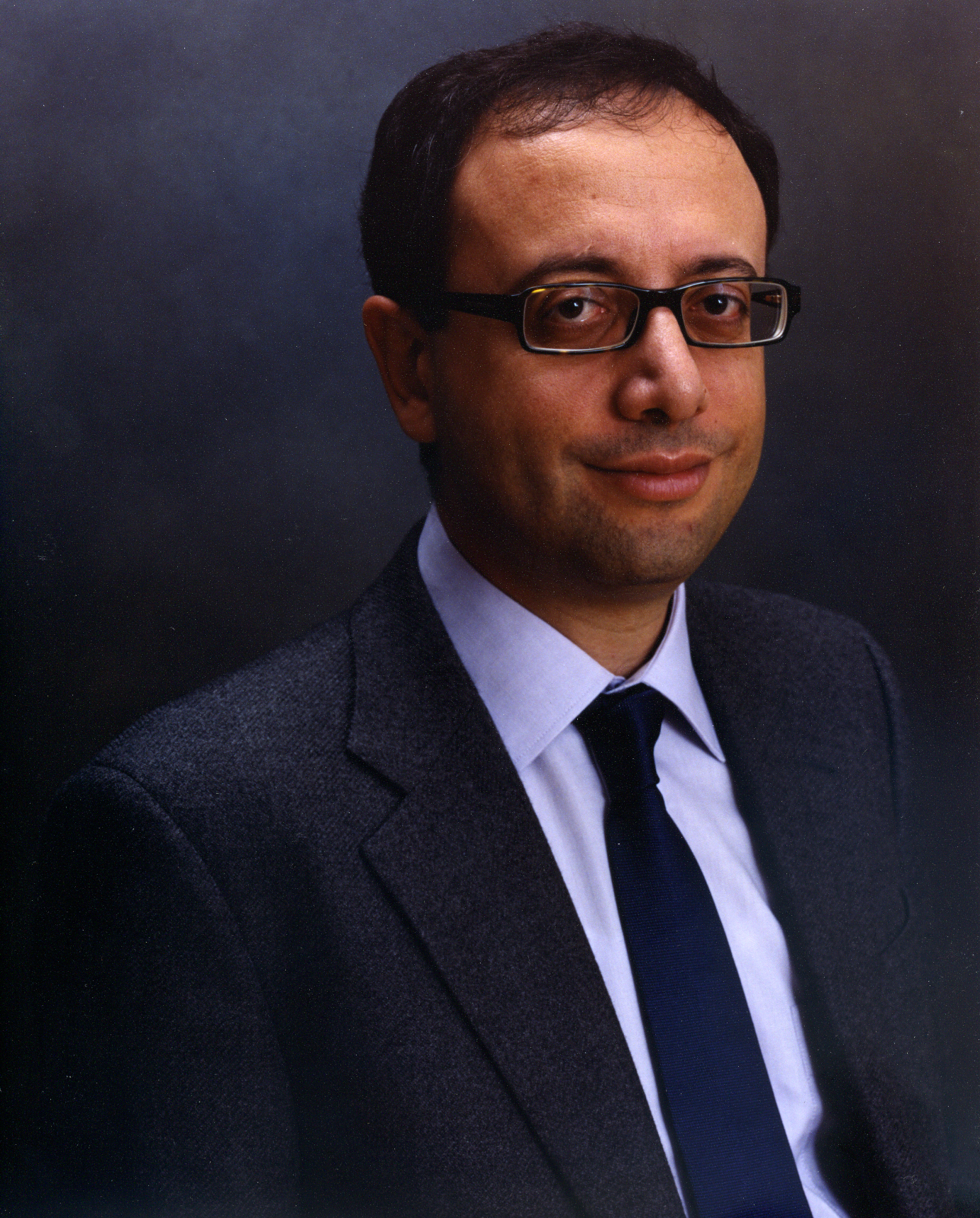
MANOS MAVRIKAKIS is the Paul A. Elfers Professor and the Vilas Distinguished Achievement Professor of Chemical Engineering at UW-Madison. He received a Diploma in Chemical Engineering from NTUA in Greece, and a MS in Applied Math, and a PhD in Chemical Engineering & Scientific Computing from the University of Michigan, Ann Arbor. Following a postdoc at U of Delaware and another one at the Technical University of Denmark, he joined the Chemical Engineering faculty at UW-Madison in 1999. His main research interests include the elucidation of detailed reaction mechanisms for heterogeneously catalyzed reactions and the identification of improved catalytic materials from first-principles-based microkinetic modeling. Manos was elected to APS Fellow in 2013, AAAS Fellow in 2014, and AVS Fellow in 2016. He received the 2009 Paul H. Emmett award in Fundamental Catalysis from the North American Catalysis Society, and the 2014 R. H. Wilhelm Award in Chemical Reaction Engineering from AIChE. In 2017, he received the G. Parravano Memorial Award for Excellence in Catalysis Research by the Michigan Catalysis Society. His work has been cited >18,500 times (WoS). Manos served as his Department Chair between 2015-2018. He currently serves on the editorial board of: ACS Catalysis, AIChE Journal, ChemPhysChem, Journal of Molecular Catalysis A: Chemical, Catalysis Today, and he is the editor-in-chief of Surface Science.
Download the lecture poster HERE
For more information on Lectures at the Leading Edge 2018-19 click HERE
 Co-hosted with the Institute for Water Innovation (IWI)
Co-hosted with the Institute for Water Innovation (IWI)
JOHN LIENHARD
Massachusetts Institute of Technology
THERMODYNAMICS AND TRANSPORT IN DESALINATIONSYSTEMS ENGINEERING
The world’s renewable fresh water supply may be considered to be the difference between precipitation over land and evaporation; and this supply is essentially fixed while world population has risen sharply and the water demands of growing economies continue to rise. As a result, water scarcity is an increasing problem throughout the world, with water shortages impacting both rural and urban populations and with substantial environmental damage as a result of water diversions for human use.
Desalination has been deployed worldwide to expand the supply of freshwater, especially for coastal populations, and its use has increased rapidly, with roughly 90 million m3/day of capacity now installed. The cost and lifetime of plants has also improved steadily. But concerns remain about the energy consumption and costs of desalination. In this talk, we will discuss research directed at understanding the causes of energy inefficiency in various desalination processes and efforts to adapt concepts from thermal systems engineering to improve the design of both thermal and membrane desalination systems. Topics to be discussed include thermodynamic and heat and mass transfer phenomena in various desalination technologies, with examples drawn from reverse osmosis, humidification-dehumidification, forward osmosis, membrane distillation, and the remediation wastewater from oil and gas production. Prospects for renewable energy integration will also be considered.
______________________________________________________
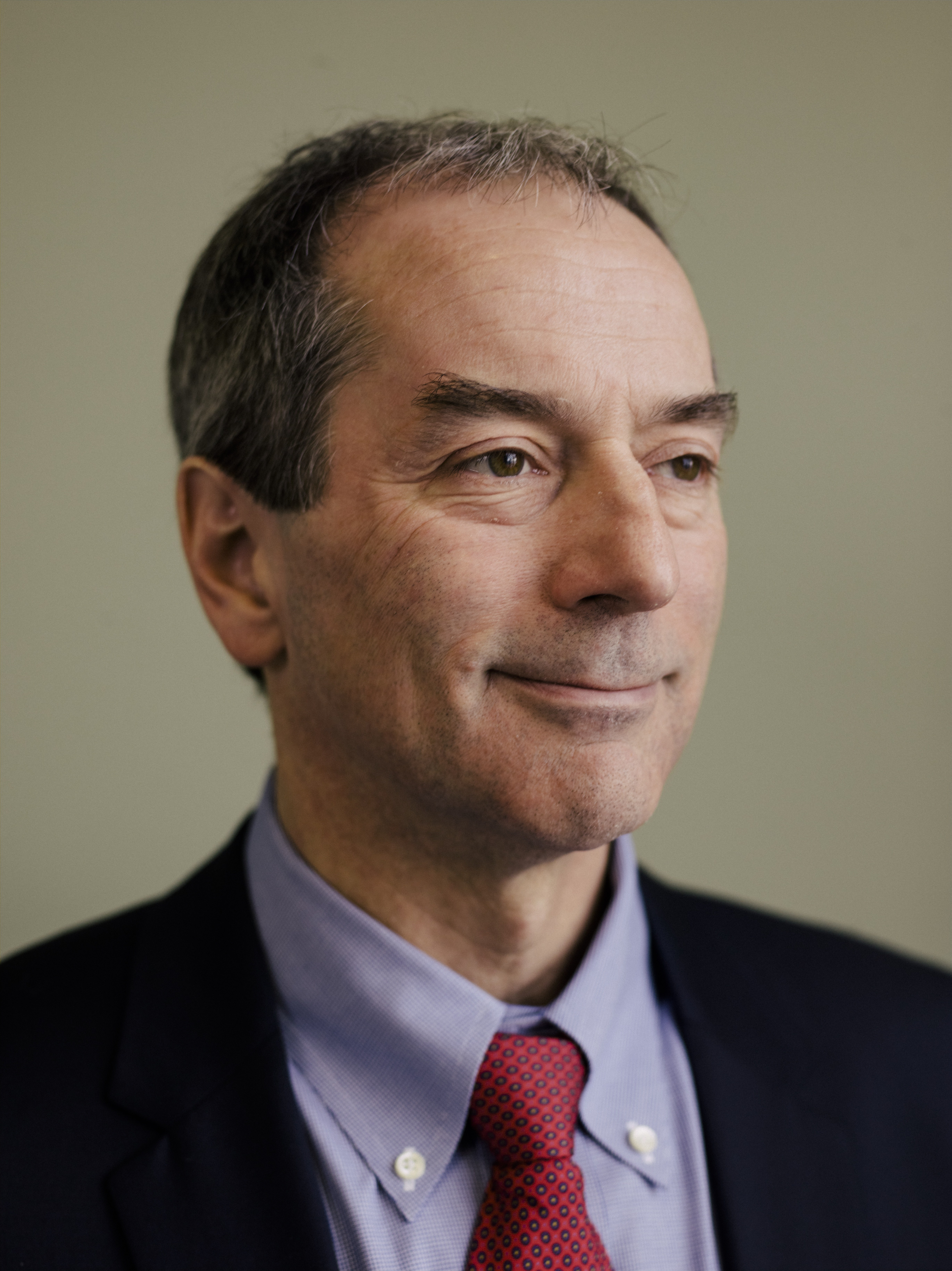
JOHN LIENHARD is the Abdul Latif Jameel Professor of Water at MIT. During three decades on the MIT faculty,Lienhard’s research and educational efforts have focused on heat and mass transfer, water purification and desalination, and thermodynamics. Lienhard received his bachelors and masters degrees in thermal engineering at UCLA from the Chemical, Nuclear, and Thermal Engineering Department. He joined MIT immediately after completing his PhD in the Applied Mechanics and Engineering Science Department at UC SanDiego. Lienhard’s research on desalination has included humidification-dehumidification, membrane distillation, forward and reverse osmosis, nanofiltration, electrodialysis, management of high salinity brines, fouling, energy efficiency, and remediation of wastewater from oil/gas operations. Lienhard has directly supervised more than 85 graduate theses and postdoctoral associates, and he is the author of 200 peer-reviewed publications and three textbooks. In addition, he holds more than 40 US Patents and pending applications, many of which have been commercialized in the water industry. Lienhard is a recipient of the 2012 ASME Globalization Medal and the 2015 ASME Heat Transfer Memorial Award. Lienhard and his students have received thirteen best paper and poster awards for their desalination research over the past seven years.
Download the lecture poster HERE
For more information on Lectures at the Leading Edge 2018-19 click HERE

Wednesday, January 30th is Bell Let’s Talk Day; a charitable program dedicated to the promotion, support, and destigmatization of mental health across Canada. The Department of Chemical Engineering & Applied Chemistry will be participating in this event by hosting drop-in mental health and de-stress activities in WB116 from 12pm-2pm, including:
- Photo station – Bell will donate 5 cents per photo we post with their filter or hashtag
- Mindful cookie eating
- Conflict corner – chat about grad student problems facilitated by a rep from the Conflict Resolution Centre
- Mental health mural and colouring station
- Free pizza upon participating in 1 of the activities
Other ways to participate:
- Post from your facebook/twitter/instagram/snapchat with the Bell Let’s Talk filter or #BellLetsTalk (we will have reps around the building to take pictures too)
- If Bell is your phone service provider, send a text or make a call
- Watch videos on their website
- Talk about it! This is the best way to promote awareness and destigmatize mental health issues
Any questions or concerns can be directed to: cegsa.chemeng@gmail.com
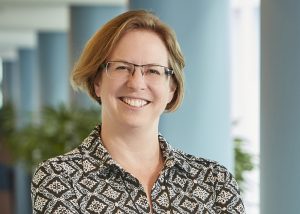 Emily Moore
Emily Moore
Director, Troost Institute for Leadership Education in Engineering (ILead)
Mine water treatment is a complex challenge which requires a combination of specialist chemical engineering knowledge with an integrated, multi-disciplinary approach. Tightening legislative requirements and emerging contaminants present new challenges which are driving more sites to tertiary water treatment systems. While new technologies show promise, there are considerable challenges to implementation resulting in significant operating and capital costs. Integrated water management (IWM) is a holistic approach to minimizing water use and contamination across the entire site, and when implemented well can reduce treatment requirements and costs. IWM presents a wonderful teaching opportunity for context-based decision making and introducing environmental considerations.
_____________________________________
Emily Moore is the new Director of the Troost Institute for Leadership Education in Engineering (ILead), joining UofT after over 20 years in industry. Emily spent the first half of her career at the Xerox Research Center of Canada (XRCC) in scale-up engineering, then in 2008 joined Hatch Limited as director of technology development, later serving as managing director for water and for innovation. In 2011 Emily was elected president of the Canadian Society for Chemical Engineering and has served on numerous committees of the Natural Sciences and Engineering Research Council of Canada. Her leadership in industry has been recognized by the Society for Chemical Industry Canada, and by Women in Mining, who named her one of 100 Global Inspirational Women in Mining 2016.
Emily earned a bachelor’s degree in engineering chemistry from Queen’s University and is a licensed professional engineer. She was named a Rhodes Scholar and completed her doctorate in physical chemistry at Oxford University.
 Emily Moore
Emily Moore